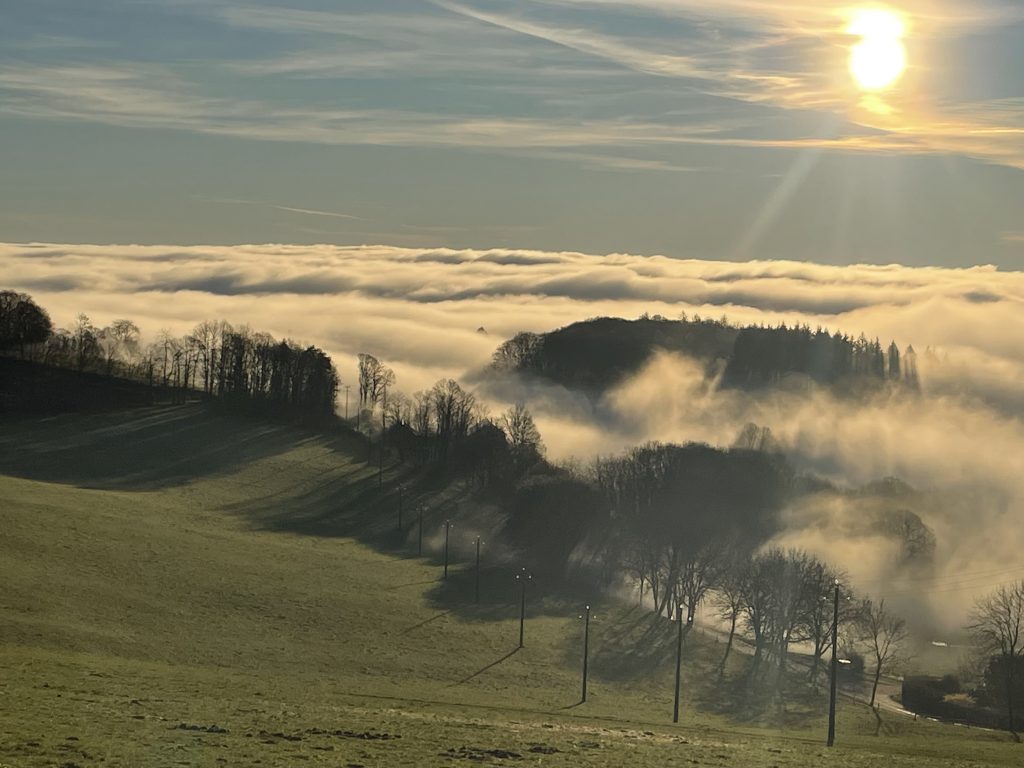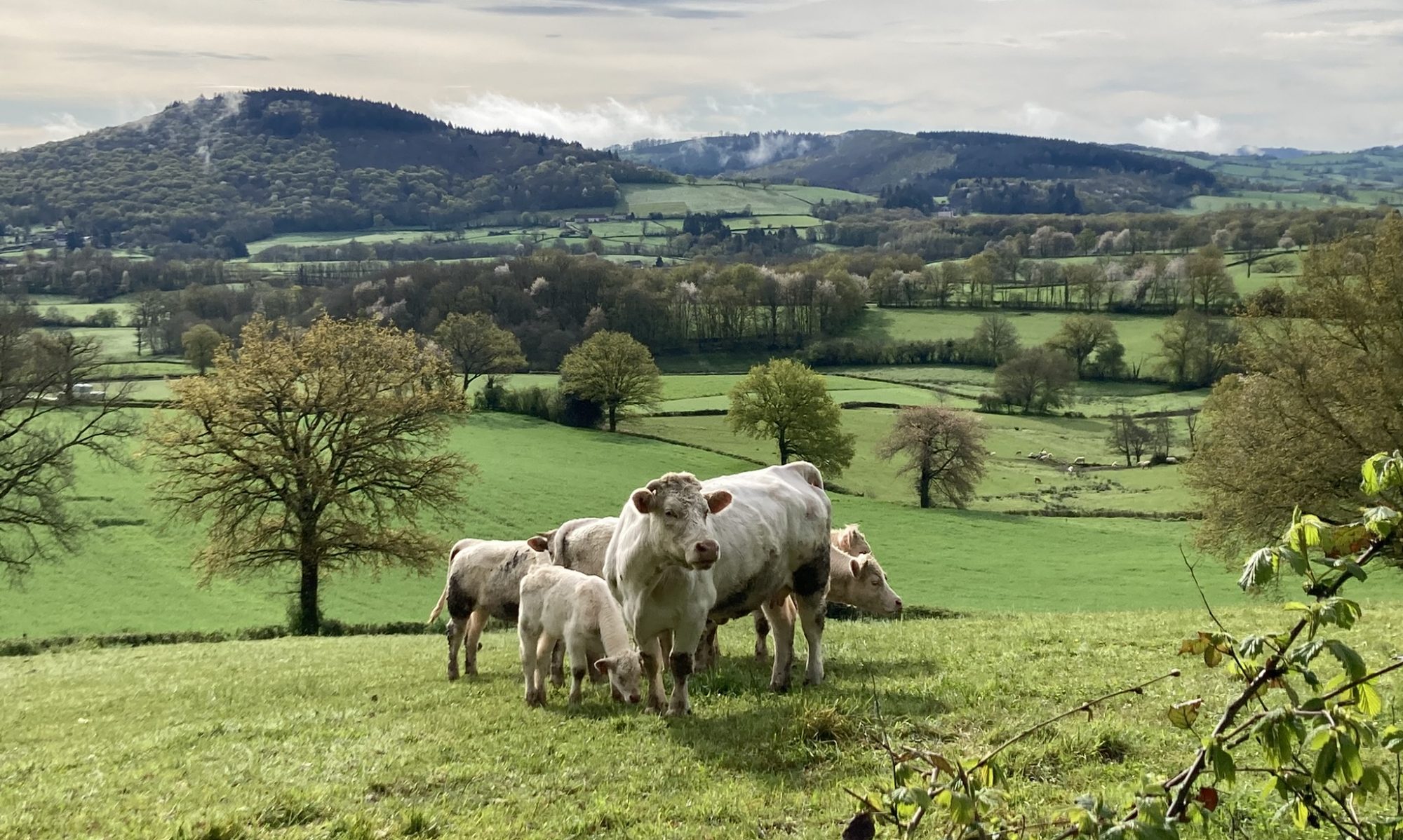
Following the second renewal of the Grand Site de France label on 5 August 2022, the Bibracte teams have been mobilised to implement several research-action projects on the themes of agriculture, forestry, water and sustainable tourism.
It took several months of work to formalise the issues, mobilise the partners, put together the funding applications and monitor their processing.
These efforts were crowned with success at the start of this year, enabling everyone, despite the uncertain context, to look ahead to the next two to three years.
The Mont Beuvray forestry laboratory: towards alternative management methods for adapting forests to climate change
This initiative received initial support from Europe and the Region under the European Partnership for Innovation in Agriculture and Forestry (PEI-AGRI) for the years 2022-2023. Thanks to the strength of the multidisciplinary consortium and the originality of this forestry experimentation programme, further support from the PEI-AGRI has been obtained for the years 2024-2026.
Several themes are being studied in interaction: study of soils (including carbon and water flows), setting up an observatory of forest stands and biodiversity, silviculture experiments and the social acceptability of practices. The laboratory is intended to be a forum for exchange and experimentation in the face of the urgency of climate change, involving and creating links between local players, the general public, economic partners and the world of research.
SADAPTER: a project to support transitions in GSF agriculture
After three years of forging partnerships with the agricultural world, the team won the same call for projects under the PEI-AGRI programme. Various partners in the region – Chambers of Agriculture, SAFER Bourgogne-Franche-Comté, Parc naturel régional (PNR) du Morvan, GIEE (Groupement d’Intérêt Économique et Environnemental) du Mont Beuvray and AgroParisTech’s Comparative Agriculture Training and Research Unit (UFR) – came together to build the programme for this three-year project (2024-2026), SADAPTER, an acronym for : Tomorrow’s Agricultural and Livestock Systems for the Preservation of Landscapes and a Resilient Ecological Transition.
The project is based on the landscape approach and the use of a bottom-up research-action method based on farmers’ concerns. Each partner is entrusted with actions in their own area of expertise (strategic advice and support for setting up and transferring farms, development of hedgerow wood, preservation of water and biodiversity, land management and innovation, development of local entrepreneurship, etc.). As far as possible, all the actions will be concentrated on small agricultural areas with a strong landscape focus, which guarantees the realism of such an approach on such a short timescale. As with the forestry laboratory, Bibracte will guarantee synergy between the actions of the various partners.
COUDRIER and the cross-cutting theme of water
In view of the climate emergency and the interconnected nature of the issue of water resources, Bibracte and their partners have been involved in the COUDRIER participative research project (Co-construction of Sustainable Uses of Water Resources and Infrastructures for Water Becoming Scarce), funded by the French National Research Agency, since September 2023 and for a period of two years. The aim of the project is to raise awareness of the importance of water resources, while creating forums for dialogue to help identify consensual ways of managing them. The model of the Associations Syndicales Libres (ASL), of which there are many in the region, is being studied in particular.
As with the other Territorial Laboratory projects, scientists, local authorities, water management authorities, economic players and local residents are being mobilised to ‘co-produce’ knowledge by combining natural sciences, human sciences and local knowledge. The aim is to analyse the local water cycle over the long term, with its unique features in this mid-mountain terrain.
SECRETOUR: towards sustainable cultural tourism
From March 2024 and for a period of three years, Bibracte will be taking part in the SECreTour research programme funded by the Horizon Europe research support scheme dedicated to the development of cultural tourism in rural areas. This project is a continuation of the INCULTUM European research-action programme in which Bibracte participated between 2021 and 2024. SECreTour is based on cooperation and participatory approaches, with a view to strengthening the attachment of communities to their landscape heritage and using this attachment as a lever to develop a tourism project that genuinely serves the area. The eleven partners involved in the consortium will examine the role of tourism and alternative economic models as a means of strengthening the resilience of local communities and their environments in the context of climate change.
In collaboration with the partners involved in the Grand Site de France initiative, Bibracte will continue the work it has been doing since 2021 to develop and promote an innovative tourism offer, combining outdoor activities, heritage discovery and cultural activities around the area’s new flagship hiking route: the Tour du Morvan des Sommets.
As a veritable catalyst for projects, this route takes an integrated approach to the tourism economy, encouraging the development of regional entrepreneurship that embraces the different sectors of activity and promotes their hybridisation: culture, services, tourism, agriculture, forestry, etc.
Towards interdisciplinarity?
In the space of two years, the Grand Site de France team has succeeded in mobilising a broad, multidisciplinary scientific community, as well as a range of socio-economic players, to organise a genuine Living Lab based on the landscape approach. For Vincent Guichard, Bibracte’s Managing Director, “the new challenge now is to bring together the different disciplinary approaches – including the archaeological research we’ve been carrying out for four decades on Mont Beuvray – to develop truly interdisciplinary research – where approaches mutually enrich each other – while actively involving local residents and organisations.”

